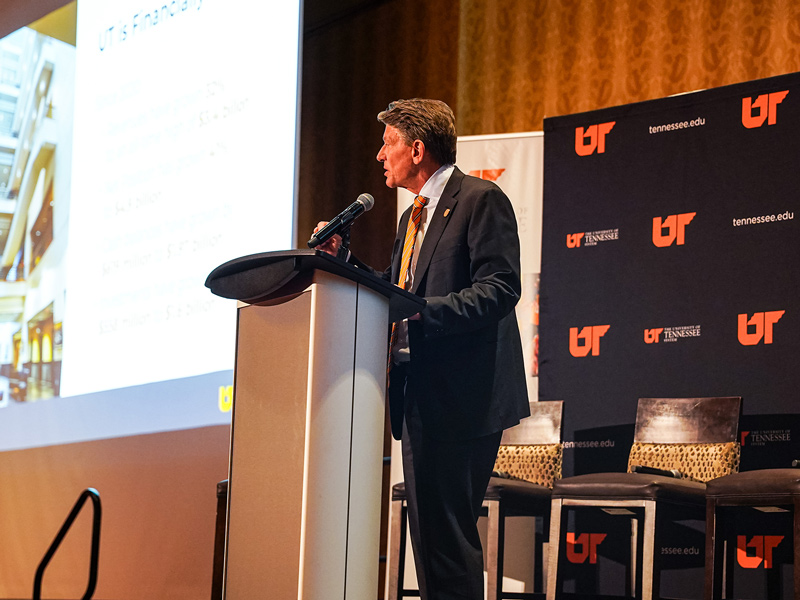State of the University
Each year, UT System President Randy Boyd and UT leaders reflect on progress, celebrate milestones and share bold plans for the future. Explore past addresses and learn how these dedicated leaders are shaping the future of the UT System.

Contact the Office of the President
Have a question, media inquiry or speaking request? Get in touch!
Jamie Blessinger
Executive Assistant
865-974-2241
Melissa Tindell
Media Contact
865-974-0741
On Feb. 13, 2025, President Boyd delivered the State of UT Address in Murfreesboro, Tennessee, before an audience of more than 370 UT faculty and staff, government leaders, and community partners during the first-ever UT Grand Challenges Summit. Joined by UT leaders, Boyd celebrated record-breaking success, research growth and statewide impact — reflecting the collective momentum driving his vision for the greatest decade in university history.
